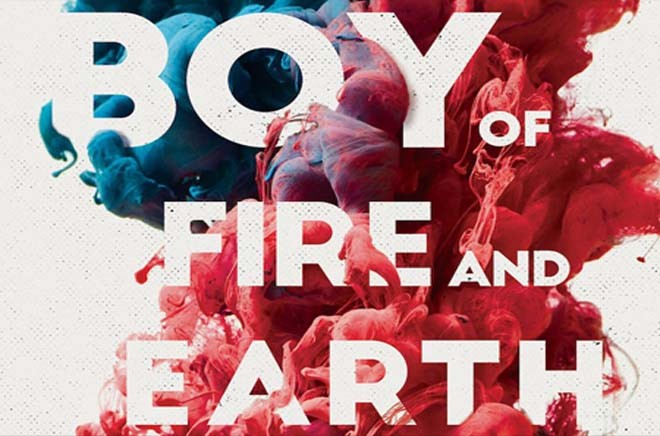
Sami Shah’s Boy of Fire and Earth is a dark, often hilarious, work of great imagination and potentiality

My experience of Sami Shah is somewhat dated, but bear with me. One fine night while procrastinating over another study session or a chai-fuelled YouTube break, I chose YouTube and one funny video of Shah turned into a binge. Well, need I tell you how my clinical exam went the next day?
So, my expectations of Shah’s novel were much the same -- something addictive and light: easy reading. My expectations were promptly turned on their head. While Boy of Fire and Earth is highly addictive and easy to read, it is also something more -- a book that captures what it means to be a slick Pakistani Muslim in this harrowing, hostile world.
If Shah’s plucky ‘Wahid’ is anything to go by, we Pakistanis are an inventive lot. It is hard to pin us down, admittedly, but that same ability also makes us pretty annoying. Or at least that’s what the ‘djinns’ in Shah’s novel complain about -- our pluckiness is a thorn in their side.
Leaving aside questions of metaphysics, faith and religion, that idea alone feels like a revelation. This is a novel that is not obsessed with weighty literary aspirations about Pakistaniat and the South Asian-ness of Monsoon, Mangroves, and Mangoes et al. Where Karachi isn’t the setting of some convoluted family drama, instead it becomes a central character in the plot to bring about the Judgment Day. Where orphans aren’t just sad news-items that show up in the chaos of a failing state, they are a lethal underground unit that operates smoothly between the worlds of jinns and humans.
Myth collides against fact against faith against mysticism, until a breathless amalgamation of a uniquely Pakistani story emerges. Where there is love, there is loss; where there is sorrow, there is a sense of wicked humour. It is this conundrum that propels the novel’s pace forward at breakneck speed, while still keeping the reader’s hand intimately on its racing pulse.
Faintly familiar characters like ‘Iblis’, ‘Dajjal’ and ‘Yuj-Majooj’ are re-encountered, ‘Koh Kaaf’ is resurrected in a way that brings to mind long summer days spent reading Taalim-o-Tarbiyat. The story is nostalgic in the best sense while also creating a hopeful anticipation for the future. ‘Wahid’ and ‘Maheen’’s story is, for me, far from over.
Word to the wise: while the protagonist is an 18-year-old boy, this is as far from Young Adult as one can possibly get. There is real violence and gore, gleefully rendered by the writer’s evocative prose. Shah is no desi Lovecraft, but in his more glorious rendition of severed body parts he comes pretty close. Still, the duology is perhaps not suitable for readers under the age of fifteen. Perhaps more precocious readers, who’ve chomped their way through the darker chapters of J. K. Rowling’s Potterverse unscathed, may find themselves comfortably at home. Time will tell.
While we may not expect a generation growing up without the influence of ‘Bil Batori’ and ‘Zakoota’, to fully appreciate this novel, I can still rest easy in the knowledge that the sheer imaginative force of this story will pull the readers in, and in doing so, may lay the groundwork of a new South Asian version of Horror and Fantasy. Perhaps the true inheritors of the legacy of Stephen King and Neil Gaiman will be reading this novel tonight, somewhere in Lahore, some place in Karachi.
While Pakistani literature is being recognised the world over for its more serious themes, it is heartening to know that more fantastical works like Shah’s are also being given their chance on the world’s stage. After all, like the girl who breathlessly says bismillah while applying her liquid eyeliner, Pakistan, too, is at a crossroads between past and future, modernity and mysticism.
Favourite Lines:
‘Somewhere in Karachi, a boy who wasn’t the king of the city, as the city itself, was smoking a cigarette while teaching another boy how to stab a man in the neck with a pen. It was the kind of lesson that would keep the student alive for longer than he would otherwise have managed.’
‘On an empty street, a woman walked in search of a man. The hem of her sari hiding her twisted feet.’
‘In a sweet shop, the owner left a tray of the finest desserts under a glass cover, knowing they would be eaten by morning.’
Boy of Fire and Earth
Author: Sami Shah
Publisher: Pan McMillan India
Year: 2017
Pages: 316
Price: PKR945